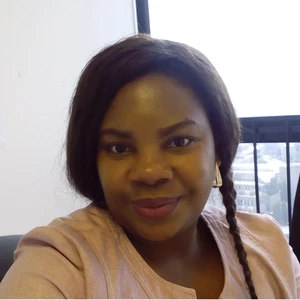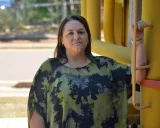The MinErAL research network is pleased to offer financial support for students engaged in the research objectives and themes of the MinErAL network. For 2024-2025, the scholarships include:
Idorenyin Williams, PhD, Queen’s University (supervisors: Rebecca Hall, Allison Goebel)
‘Queering Sisterhood’? A Comparative Study of Experiences of Sexual Violence against Indigenous Women in Resource Extraction Communities of the Niger Delta and Northern Canada. Towards a Transnational Approach
She is currently a PhD student in Cultural Studies program at Queen’s University, Ontario. In her research, she examines the gap in researching the distinct and intersectional experiences of sexual violence by Indigenous women and 2SPLGBTIQQA persons in extractive communities of the ‘Global North’ vis-à-vis the ‘Global South’.
Tee L im, PhD, University of British Columbia (supervisors: Glen Coulthard, Terre Satterfield, Rebecca Hall)
im, PhD, University of British Columbia (supervisors: Glen Coulthard, Terre Satterfield, Rebecca Hall)
Maintaining and strengthening the Tłı̨chǫ traditional economy - Mine closures, caribou, and the mixed economy of the Tłı̨chǫ Nation
Tee Lim is a PhD student at the Institute for Resources, Environment, and Sustainability at the University of British Columbia. He has been based in Sǫǫ̀mbak'è/Yellowknife and focused on research in Northern Canada over 10 years. my research looks at how the Tłı̨chǫ Nation can “maintain and strengthen” their Traditional Economy and ensure their “economic self-sufficiency”, in the face of impending diamond mine closures and the drastic decline in barren-ground caribou populations.
 Maggie MacDonald, Master, Queen’s University (supervisors: Allison Goebel and Rebecca Hall)
Maggie MacDonald, Master, Queen’s University (supervisors: Allison Goebel and Rebecca Hall)
Navigating Diamond Mine Closures: Youth Experiences and Community Resilience in the Northwest Territories
Maggie is entering her second year of the two-year Master of Environmental Studies program at Queen's University. Her research is focused on the impacts of diamond mining on Indigenous communities in the Northwest Territories (NWT), and the uncertain future dynamics in the face of a shifting economy due to mine closures.
 Jodi Cowdery, PhD, Charles Darwin University (supervisor: Andrew Taylor)
Jodi Cowdery, PhD, Charles Darwin University (supervisor: Andrew Taylor)
Indigenous women’s employment in and experiences of large-scale mining in the Northern Territory of Australia
Jodi is currently undertaking her PhD with the Northern Institute at Charles Darwin University on mining and Indigenous livelihoods. Through an examination of the intersectionality of race and gender, Jodi’s research will examine how the stories and experiences of Indigenous women employed by large-scale mines in the Northern Territory of Australia can help reduce marginalisation and discrimination in the mining industry, and increase Indigenous female representation in the sector locally, nationally and globally.

Karen Bouchard, PhD, Laval University (supervisors: Thierry Rodon, Yannick Dufresne)
Can Modern Treaties Reverse the Resource Curse? A Case Study on the Effects of the Nunavut Agreement on Inuit Socioeconomic Development and Self-determination in the Context of Mining
Karen Bouchard is a doctoral student in political science at Université Laval. Her research examines how the institutions established through Modern Treaties may enhance the positive effects and mitigate the negative repercussions of mining in Nunavut.

Louise Nachet, PhD, Laval University (supervisor: Thierry Rodon)
Résistances extractives : dynamiques des coalitions entre autochtones et non-autochtones autour des projets miniers au Canada
Louise Nachet is a doctoral student in political science at Laval University. Her research focuses on coalitions between Indigenous and environmental activists on mining extraction in Canada. Particularly interested in the potential and challenges of such alliances, she seeks to further understand the transformative nature of their mobilizations.

Sandra McKay, PhD, Queen's University (supervisor: Rebecca Hall)
Following the gold: The Complex Circuits of Mineral and Capital in Artisanal and Small-Scale Gold Mining
Sandra McKay is currently doing a PhD in Global Development Studies at Queen's University. She is interested in the mining and development debate. Her research looks at the conditions that influence the role that artisanal and small-scale gold mining has in improving local sustainable livelihoods in Peru.

Kimberleigh Schultz, PhD, McMaster University (supervisor: Suzanne Mills)
A changing climate: Indigenous livelihoods and northern development
Kimberleigh Schultz is a Ph.D. candidate in the School of Geography and Earth Sciences at McMaster University. Her academic research looks at Indigenous livelihoods in the context of development and climate change. Kim’s goal is to undertake research that supports Indigenous communities engaged in development to meaningfully participate in the planning process, and in the negotiation of agreements that will lead to the outcomes they want.

